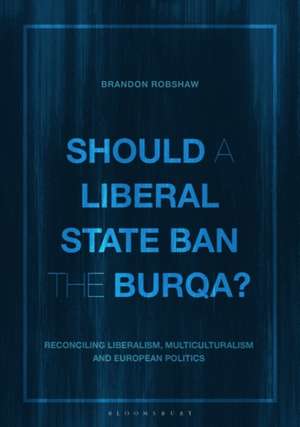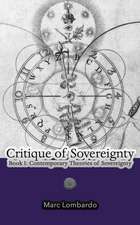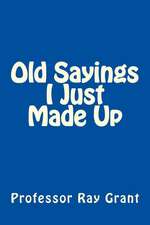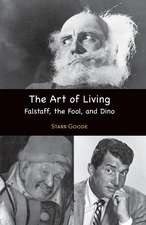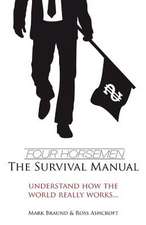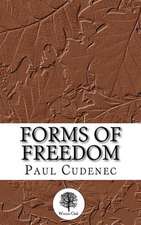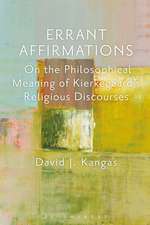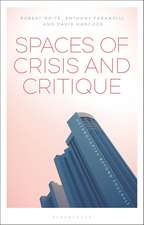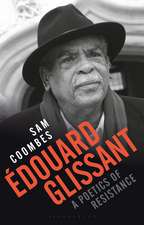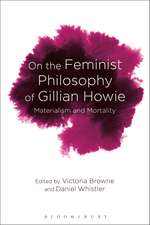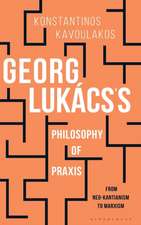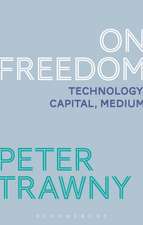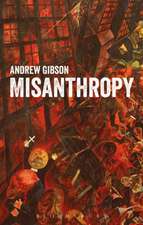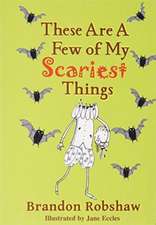Should a Liberal State Ban the Burqa?: Reconciling Liberalism, Multiculturalism and European Politics
Autor Brandon Robshawen Limba Engleză Hardback – 10 iun 2020
| Toate formatele și edițiile | Preț | Express |
|---|---|---|
| Paperback (1) | 198.30 lei 6-8 săpt. | |
| Bloomsbury Publishing – 29 dec 2021 | 198.30 lei 6-8 săpt. | |
| Hardback (1) | 598.76 lei 6-8 săpt. | |
| Bloomsbury Publishing – 10 iun 2020 | 598.76 lei 6-8 săpt. |
Preț: 598.76 lei
Preț vechi: 764.58 lei
-22% Nou
Puncte Express: 898
Preț estimativ în valută:
114.61€ • 124.53$ • 96.33£
114.61€ • 124.53$ • 96.33£
Carte tipărită la comandă
Livrare economică 21 aprilie-05 mai
Preluare comenzi: 021 569.72.76
Specificații
ISBN-13: 9781350125056
ISBN-10: 1350125059
Pagini: 264
Dimensiuni: 156 x 234 mm
Greutate: 0.54 kg
Editura: Bloomsbury Publishing
Colecția Bloomsbury Academic
Locul publicării:London, United Kingdom
ISBN-10: 1350125059
Pagini: 264
Dimensiuni: 156 x 234 mm
Greutate: 0.54 kg
Editura: Bloomsbury Publishing
Colecția Bloomsbury Academic
Locul publicării:London, United Kingdom
Caracteristici
Offers a discussion of liberal thought, drawing on the ideas of major philosophers including Locke, Mill and Nussbaum
Notă biografică
Brandon Robshaw is a Lecturer in Philosophy at the Open University, UK.
Cuprins
1. Introduction 2. Reflections on the French ban 3. The liberal position on habitual public face-covering per se 4. What kind of liberalism? 5. Paternalism considered 6. Personal autonomy and the burqa 7. Adaptive preferences and the burqa 8. The burqa and multicultural theory 9. Gender and the burqa 10. The effect of the burqa on others: Offence 11. The effect of the burqa on others: Harm12. Conclusion BibliographyIndex
Recenzii
'In the midst of an overheated cultural war, it is such a pleasure to read Brandon Robshaw's calm and incisive discussion of the controversy about the burqa. Robshaw combines a dazzlingly clear analysis of the arguments with an engaging account of the situation on the ground in a book that is both philosophically profitable and politically relevant.'
Robshaw offers a comprehensive analysis of issues associated with banning the burqa. He provides the philosophical background that a student needs to grasp the dilemmas posed by the burqa in a liberal society. He also sustains a very high level of discussion; the book will be informative and provocative for professional philosophers and social scientists. I am impressed that Robshaw gives a full and accurate account of how some countries, such as France, have arrived at banning the burqa. Robshaw's thesis, which defends those who wear the burqa against regulation, is compelling because he recognizes other voices in the debate. Delineating his own argument in a heterodox atmosphere, Robshaw brilliantly dramatizes what it means to think about the burqa in a liberal spirit.
Drawing on important work in contemporary political theory, this book addresses with depth and vigor an important practical challenge facing liberal societies today (and one whose implications extend widely). The unusual clarity and accessibility of the writing make it an especially useful model of how to engage thoughtfully with various pressing political issues of our time.
Robshaw offers a comprehensive analysis of issues associated with banning the burqa. He provides the philosophical background that a student needs to grasp the dilemmas posed by the burqa in a liberal society. He also sustains a very high level of discussion; the book will be informative and provocative for professional philosophers and social scientists. I am impressed that Robshaw gives a full and accurate account of how some countries, such as France, have arrived at banning the burqa. Robshaw's thesis, which defends those who wear the burqa against regulation, is compelling because he recognizes other voices in the debate. Delineating his own argument in a heterodox atmosphere, Robshaw brilliantly dramatizes what it means to think about the burqa in a liberal spirit.
Drawing on important work in contemporary political theory, this book addresses with depth and vigor an important practical challenge facing liberal societies today (and one whose implications extend widely). The unusual clarity and accessibility of the writing make it an especially useful model of how to engage thoughtfully with various pressing political issues of our time.
